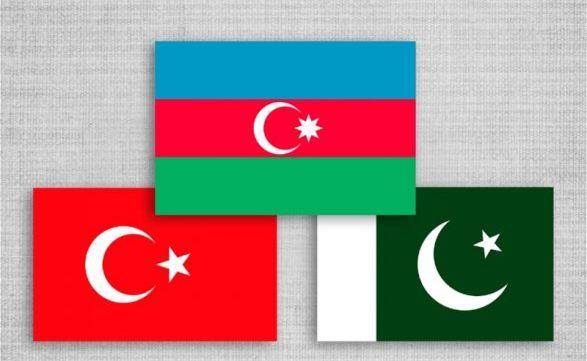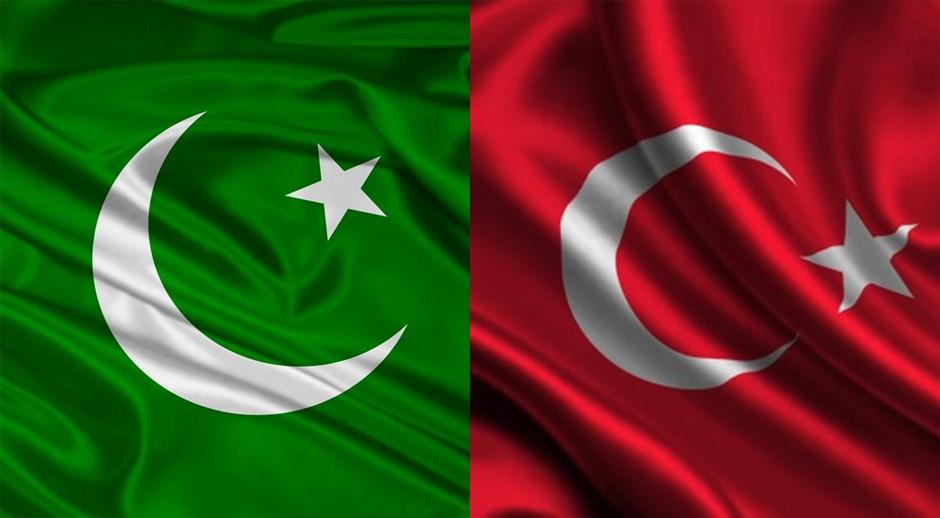"Peace with Baku is economically beneficial for Yerevan" Muhammad Asif Noor for Caliber.Az
Caliber.Az had an interview with the Director of Pakistan Institute of Peace and Diplomacy (Islamabad), international expert Muhammad Asif Noor.
- How do you assess the current relations between Azerbaijan and Pakistan? Is there a potential for expansion of cooperation, especially in the military-technical sphere?
- The positive direction of Pakistan-Azerbaijan relations was not achieved overnight, rather it is the result of three decades of cooperation, backed by common history, culture, and religion. As a consequence, both states support each other in regional and global issues, which is extremely important in the current complex geopolitical situation in the world.
As you know, Pakistan has supported Baku's just position in the Armenian-Azerbaijani conflict since Azerbaijan's independence. A strong strategic partnership has been established between our countries, including successfully developing bilateral military cooperation. Pakistan has a huge military-industrial complex with the latest equipment and technology for the diversification and training of military personnel and is open to cooperation with Azerbaijan in this area. Let me also remind you that Pakistan is a nuclear power with powerful armed forces. The country also has extensive experience in conducting anti-terrorist operations, so expansion of cooperation between our countries in this area is also advisable.
As to the military-technical cooperation, Baku, as far as I know, was interested in the purchase of Pakistani fighters, and this is also an indicator of the positive dynamics in the military sphere. I think it is also appropriate to recall the military exercises "Three Brothers" with the participation of Pakistan, Türkiye, and Azerbaijan, which took place on the initiative of Baku. These exercises confirmed the willingness of the sides to continue cooperation in the military sphere, which, in my opinion, will significantly strengthen security in the region.

- What do you think is the significance of the Türkiye-Pakistan-Azerbaijan format in the system of international relations?
- The Pakistan-Türkiye-Azerbaijan format is an informal and organic evolution of trilateral cooperation in many areas. This format is important given the changing geostrategic environment in the region, especially after the US withdrawal from Afghanistan and the start of the "One Belt, One Road" initiative. It is obvious that Azerbaijan pursues a balanced and independent foreign policy aimed at maintaining a delicate balance in its relations with the West and Russia. In turn, Türkiye and Pakistan form a regional partnership with Azerbaijan, which unites the Turkic identity of Ankara and Baku.
Today, Azerbaijan is perceived in the region and the world as a strong player in international politics, also due to the support of Türkiye and Pakistan. At the same time, Baku in the current post-conflict period makes a significant contribution to the strengthening of the Turkic factor. In other words, all three countries are making serious efforts to strengthen unity.
- Your opinion on the normalization of Armenian-Azerbaijani relations? Why does Armenia torpedo this process?
- The torpedoing of Armenian-Azerbaijani negotiations is linked to the depressed psychological state of the Armenian society after the well-known results of the 44-day war in Karabakh, and the unwillingness of the Armenian authorities to conduct a dialogue, while Baku stands for the establishment of lasting peace and stability in the region.
- Will the sides be able to sign a peace agreement in the foreseeable future?
- I think there is such a chance. Most likely, a peace agreement will be signed between Baku and Yerevan. To a large extent, this may be due to the difficult economic situation in Armenia. A peace agreement with Azerbaijan may positively influence the socio-economic situation in that country. That is, peace with Baku is economically beneficial for Yerevan.
- In what areas do you think Pakistani-Turkish cooperation has increased after the withdrawal of US troops from Afghanistan?
- The withdrawal of US troops from Afghanistan had a major impact on Pakistan-Türkiye relations in the defence sphere. The US was a major power in the region in combating terrorist threats through the use of modern intelligence, surveillance, and reconnaissance (ISR) technology. After the US withdrawal, a gap was made in counterterrorism operations in the region, especially along the Pakistan-Afghanistan border. Pakistan has identified the need for aerial reconnaissance with combat drones, a new aerospace technology heavily used in the war between Azerbaijan and Armenia. Pakistan and Türkiye are now researching combat drones and are planning joint production of the Anka Combat UAV. Pakistan and Türkiye are in the initial stages of producing a fifth-generation fighter as well. All these details clearly confirm the intensification of cooperation between Türkiye and Pakistan against the background of the withdrawal of US troops.

- To what extent can cooperation between Ankara and Islamabad change the balance of power in the Middle East?
- The recent visit of the Turkish president to Iran, where a trilateral Russia-Türkiye-Iran summit was held, to a certain extent increased the probability of changing the balance of power in the Middle East. However, since Pakistan is an ally of Türkiye and a partner of Iran and Russia in pursuing a balanced policy, the change in the balance of power in the region is unlikely.
- Pakistan has expressed a neutral position on the Russia-Ukraine crisis. What is your personal view on this?
- Pakistan has rejected US requests to condemn the Russian invasion of Ukraine and is in favor of a peaceful solution to the Ukrainian crisis.
Supporting or opposing any conflict in the world is seen as participating in a war. Pakistan does not want to become part of any conflict. We have already suffered great human and financial losses in the American-led war on terrorism in Afghanistan, which has radicalized Pakistani society.








